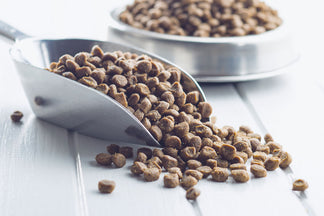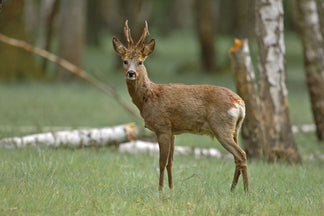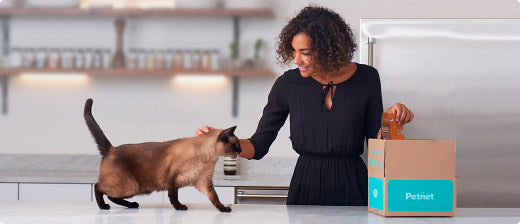The link between food and feline diabetes is a subject that we’ve talked about before but it keeps coming up so I think it’s a good idea to revisit the subject.
One of the concerns surrounding dry food is the carbohydrate content in the foods. Dry foods tend to have moderate to high levels of carbohydrates. Many sources on the internet will tell you that feeding dry foods that contain high levels of carbohydrates will cause your cat to develop diabetes. But is this true and what is the real relationship here?
We know that feeding a high-protein low-carbohydrate diet can be effective for controlling the glycemic response in diabetic cats and many diabetic cats fed this type of diet will actually go into diabetic remission. Many people make the claim that since feeding these diets to a diabetic cat is beneficial, then feeding a healthy cat a high-protein low-carbohydrate diet should prevent diabetes. However, the situation is actually much more complex than that.
In 2011, at the World Small Animal Veterinary Association World Congress, Claudia A. Kirk, DVM, PhD, DACVN, DACVIM presented a session entitled Cats and Carbohydrates – What is the Impact? These are some of the highlights of her presentation:
Several studies have evaluated the potential role of carbohydrates in the pathogenesis of DM (diabetes mellitus) in cats.
Summarizing key findings:
- An epidemiological study of cats from the Netherlands found indoor confinement and low physical activity and not amount of dry food were associated with DM. High carbohydrate intake was not considered a risk factor for feline DM. But recent reports from these investigators have suggested an association of high carbohydrate foods with calcium oxalate urolithiasis. Indoor confinement and physical inactivity rather than the proportion of dry food are risk factors in the development of feline type 2 diabetes mellitus.
- In cats fed a high carbohydrate/low fat (HC/LF) versus low carbohydrate/high fat (LC/HF) food, cats eating the LC/HF demonstrated reduced insulin responsiveness during glucose tolerance testing compared with cats eating the HC/LF food. Dietary fat appeared to be related to insulin resistance and weight gain more so than carbohydrate intake.
- A study comparing the effect of a HC/low-protein food vs. a LC/high-protein food on glucose and fat metabolism in lean and obese cats before and after weight loss. Obesity, but not dietary protein or carbohydrate content, led to severe insulin resistance in cats.
- Effects feeding different amounts of carbohydrate and fat were evaluated in 24 cats before and after gonadectomy. Cats were fed either 4%, 27%, 45%, or 56% carbohydrate (DMB) by free choice. 1) High concentrations of dietary carbohydrate did not induce weight gain or increased plasma glucose and insulin concentrations prior to gonadectomy, 2) gonadectomy resulted in increased food intake and weight gain, in which high dietary fat appeared more important.
- Another study comparing a traditional high carbohydrate fiber enhanced weight control food with a low carbohydrate diet found similar weight loss when caloric intake was restricted to the same level.
- Current published evidence does not support a direct cause-and-effect relationship between increased carbohydrate consumption and DM or obesity in cats.

 Food
Food
 Food
Food
 Food
Food
